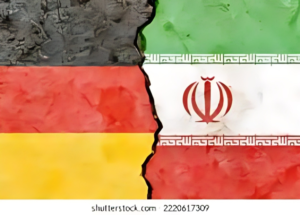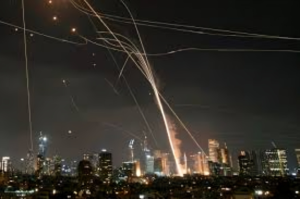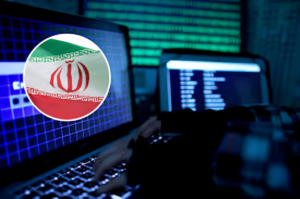Germany’s Fake News Offensive: Tehran’s Devastating Response
Introduction
In recent weeks, tensions between Tehran and Berlin have escalated beyond diplomatic protests and official statements. Iran’s state media has accused Germany of orchestrating a concerted “fake news” campaign, alleging that Berlin is disseminating misleading narratives aimed at undermining public trust in Iranian institutions and sowing social discord. These claims, amplified by fiery editorials and social‑media posts, have sent shockwaves through both capitals, prompting heated debates about the ethics of information warfare in an age where digital channels can amplify a single tweet into a global incident.

Roots of the Dispute
Germany and Iran share a complex history of cultural exchange, economic ties, and political rivalry. Over the past decade, their relationship has wavered between cautious engagement—such as nuclear negotiations—and mutual suspicion. The present crisis began when several German‑based news outlets published articles alleging corruption within key Iranian ministries. Iran’s Supreme National Security Council swiftly labeled those reports as “fabrications” and accused Germany of “deliberately spreading disinformation.”
Key moments that fueled the narrative include:
- Leaks of purported “insider memos” claiming misuse of public funds in Tehran.
- Anonymous social‑media posts circulating doctored images of Iranian officials.
- Repeated German parliamentary debates on lifting certain sanctions, framed by Tehran as attempts to legitimize the fake stories.
These developments set the stage for a full‑blown propaganda confrontation, with both sides using their respective state‑backed media to rally public opinion.
How Fake News Spreads: Mechanisms and Motives
Understanding the anatomy of modern disinformation campaigns helps explain why Tehran’s allegations struck a nerve. Fake news often leverages:
- Echo Chambers
- Algorithm‑driven social‑media feeds that reinforce existing beliefs.
- Closed messaging groups where rumors go unchecked.
- Deepfakes and Manipulated Media
- AI‑generated audio clips purportedly of Iranian officials.
- Altered photographs suggesting illicit behavior.
- Coordinated Bots and Trolls
- Automated accounts amplifying negative headlines.
- Paid influencers sharing sensationalist takes.
Germany, in response, has officially denied any state‑sponsored involvement, pointing to the free press and strict regulations against defamation. Berlin’s Information Ministry emphasized that editorial independence means no government office can direct news coverage. Yet, the sheer volume and persistence of the allegations forced German authorities to launch internal reviews, further stoking Tehran’s narrative of complicity.
Real‑Life Snapshots: Stories from the Ground
To humanize the conflict, consider these vignettes:
- A Tehran Shopkeeper’s Distrust
Fatemeh, who runs a small clothing store in northern Tehran, says she began doubting local news outlets when she saw the same “corruption” story trending on German platforms. “If it’s on the internet, it must be true,” she thought—until she learned the screenshots were taken out of context. - A German Student’s Surprise
Lukas, studying political science in Berlin, followed a popular Iranian blogger who claimed German media was lying about Tehran’s clean‑energy goals. Shocked, he reached out to his university’s Middle East studies department, only to find the original data was accurately reported.
These anecdotes underscore the real costs of disinformation: confusion, broken trust, and the erosion of cross‑cultural dialogue.

Consequences for International Relations
Tehran’s allegations come at a sensitive juncture. Iran is seeking relief from crippling sanctions, while Germany plays a key role in any future diplomatic breakthrough. The fake‑news row threatens to derail:
- Nuclear Compliance Talks
Mutual distrust could stall discussions on Iran’s uranium enrichment levels. - Trade and Investment
German companies contemplating Iranian ventures may hesitate amid uncertainty. - Cultural Exchanges
Student‑exchange programs and academic collaborations risk suspension if political tensions intensify.
On the flip side, Germany must balance defending its media’s integrity with acknowledging the genuine concerns of Iranian citizens. Transparency initiatives, fact‑checking partnerships, and bilateral media‑watch committees have been proposed as confidence‑building measures.
Strategies to Combat Disinformation
Both nations—and any reader seeking resilience against fake news—can adopt these user‑first practices:
- Verify Before Sharing
Cross‑check news items with multiple, credible outlets. Look for original sources. - Watch for Red Flags
Extreme headlines, missing author credentials, and lack of dates can signal false information. - Educate Communities
Host workshops in schools and local centers on digital literacy. - Support Fact‑Checkers
Promote independent organizations that specialize in debunking viral rumors. - Engage in Dialogue
Encourage conversations across cultural lines to build empathy and trust.
By prioritizing these steps, individuals help inoculate their communities against the divisive power of disinformation.
Conclusion
The clash between Tehran and Berlin over “fake news” is emblematic of a broader global struggle. In an age where a single tweet can alter public perception, both governments and citizens carry the responsibility to seek truth and foster open dialogue. While Iran accuses Germany of malicious intent, and Germany defends its free press, ordinary people like Fatemeh and Lukas remind us that clarity and critical thinking remain our best defense. Only by working together—through transparency, education, and mutual respect—can we counter the devastating messages that threaten to divide us.